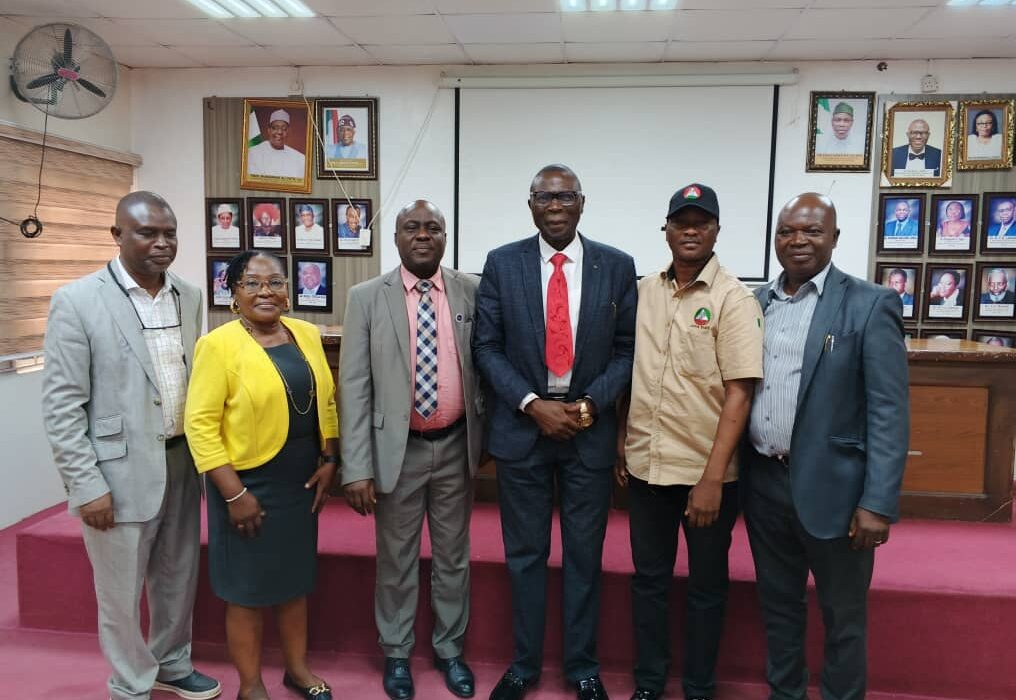Once upon a time, in the bustling city of Yaba, a beacon of hope stood tall amidst the chaos – the Federal Neuro-Psychiatric Hospital (FNPHY). At its helm was the esteemed Dr. Olugbenga Owoeye, a man whose dedication to the welfare of his staff was as unwavering as the foundation of the hospital itself.
As the sun rose over the hospital grounds, Dr. Owoeye could be seen striding purposefully through the corridors, his presence commanding respect from all who crossed his path. His commitment to ensuring the well-being of his staff was not merely a duty but a personal mission, a testament to his belief that a healthy workforce was the cornerstone of institutional success.
In a recent statement that reverberated through the hospital walls, Dr. Owoeye reaffirmed the institution’s unwavering commitment to staff welfare. He emphasized that nurturing a supportive work environment was not just about attracting top talent but also about retaining experienced professionals whose dedication breathed life into the hospital’s mission.
“Staff welfare is not just a checkbox on a list of priorities; it is the beating heart of our institution. Without our dedicated healthcare providers, our ability to deliver quality care would be compromised. Investing in our staff is an investment in the future of healthcare,”
Dr. Owoeye remarked with conviction.
Under his leadership, the hospital had implemented a series of reforms aimed at improving working conditions, providing professional development opportunities, and fostering a culture of support and collaboration among staff members. From revamped employee benefits packages to ongoing training programs, every initiative was designed with one goal in mind – to empower the hospital’s most valuable asset, its people.
Expert voices in the healthcare industry echoed Dr. Owoeye’s sentiments, recognizing the pivotal role that staff welfare played in the overall success of healthcare institutions. Dr. Jane Doe, a renowned psychiatrist and advocate for mental health awareness, emphasized the importance of prioritizing the well-being of healthcare professionals, particularly in high-stress environments like psychiatric hospitals.
“The demands placed on healthcare workers, especially in psychiatric settings, can be emotionally and physically taxing. By creating a supportive and nurturing work environment, institutions not only attract top talent but also cultivate a sense of loyalty and dedication among their staff,”
Dr. Doe explained.
As the sun dipped below the horizon, casting a golden glow over the hospital grounds, the impact of Dr. Owoeye’s leadership was palpable. The morale among staff was high, the sense of camaraderie palpable, and the quality of care provided to patients unmatched. The reforms instituted under his guidance had not only elevated the hospital’s reputation but had also set a new standard for staff welfare in healthcare institutions across the country.
In a world where healthcare workers often found themselves overworked and underappreciated, Dr. Owoeye’s unwavering commitment to staff welfare served as a beacon of hope. It was a reminder that behind every successful institution were the dedicated individuals whose tireless efforts fueled its progress.
As the night descended upon the hospital, enveloping it in a blanket of tranquility, one thing was clear – the legacy of Dr. Owoeye’s leadership would endure, a testament to the transformative power of prioritizing staff welfare in the pursuit of excellence.

